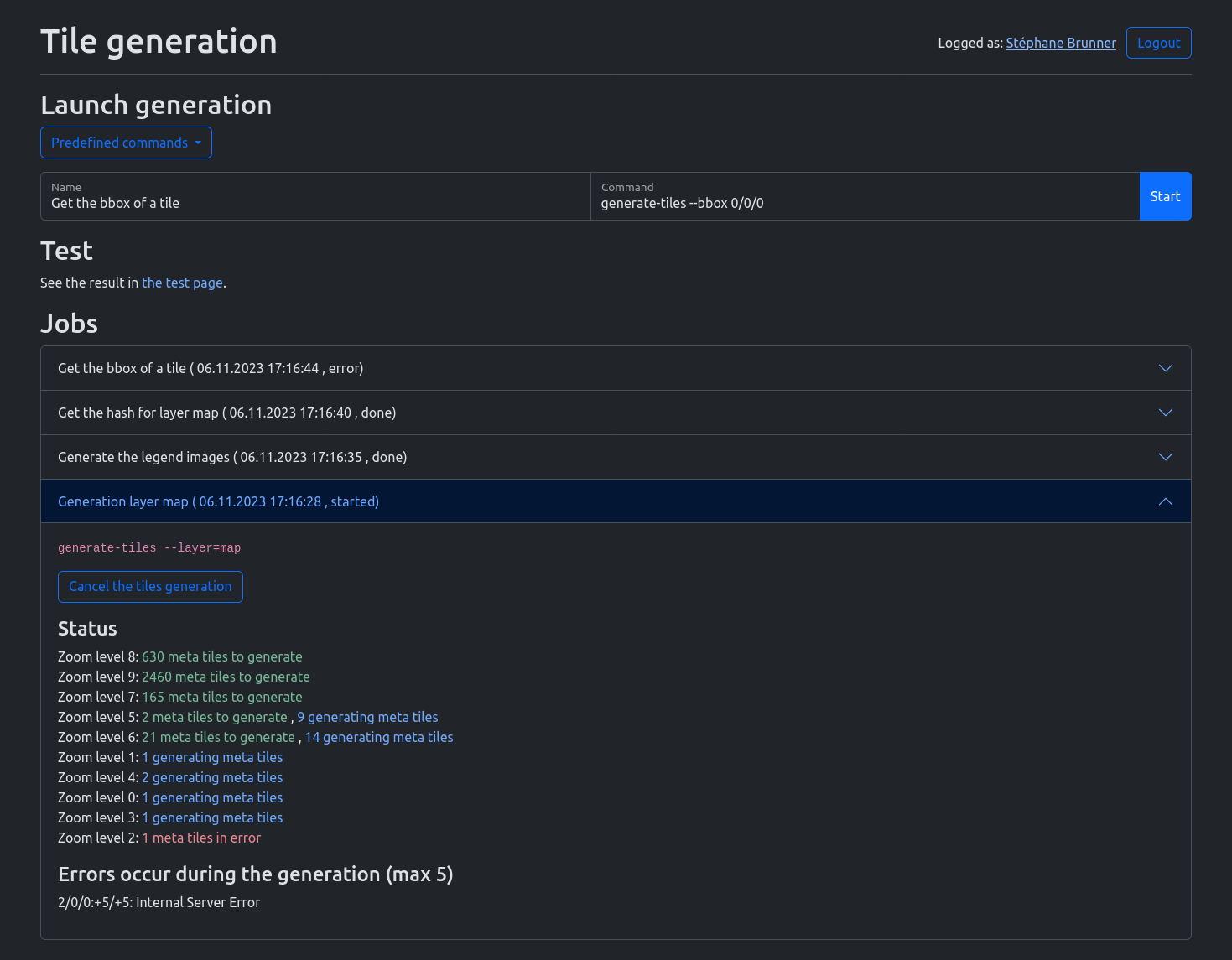The goal of TileCloud Chain is to provide tools around tile generation on a chain like:
Source: WMS, Mapnik.
Optionally using an SQS queue, AWS host, SNS topic.
Destination in WMTS layout, on S3, on Berkeley DB (bsddb), on MBTiles, or on local filesystem.
Features:
- Generate tiles.
- Drop empty tiles.
- Drop tiles outside a geometry or a bbox.
- Use MetaTiles.
- Generate the legend images.
- Generate GetCapabilities.
- Generate OpenLayers example page.
- Obtain the hash of an empty tile.
- In the future, measure tile generation speed.
- Calculate cost and generation time.
- In the future, manage the AWS hosts that generate tiles.
- Delete empty tiles.
- Copy files between caches.
- Be able to use an SQS queue to dispatch the generation.
- Post processing the generated tiles.
- ...
Legacy features:
- bsddb support
- sqlite (mbtiles) support
- mapnik support (should be updated for Python3)
Screenshot of the admin page with queue stored on PostgreSQL:
Create the config file tilegeneration/config.yaml see as example.
Only the latest release is supported and version < 1.11 contains security issues.
Build it:
git submodule update --recursive
python3 -m venv .build/venv
.build/venv/bin/pip install -r requirements.txt
.build/venv/bin/pip install -e .
.build/venv/bin/pip install -r dev-requirements.txt.build/venv/bin/prospectorSetup your environment:
touch tilecloud_chain/OpenLayers.js
docker build --tag camptocamp/tilecloud-chain .
docker-compose -p tilecloud upTo run the tests:
docker-compose -p tilecloud exec test python setup.py nosetests --logging-filter=tilecloud,tilecloud_chain --attr '!'nopy3As documentation you can read the USAGE.rst and the configuration reference.
You can add that in your workspace configuration to use the JSON schema:
{
"yaml.schemas": {
"../tilecloud-chain/tilecloud_chain/schema.json": [
"tilecloud-chain/tilecloud_chain/tests/tilegeneration/*.yaml"
]
}
}Install the pre-commit hooks:
pip install pre-commit
pre-commit install --allow-missing-config